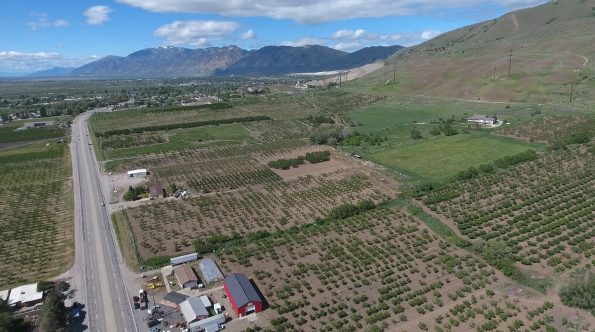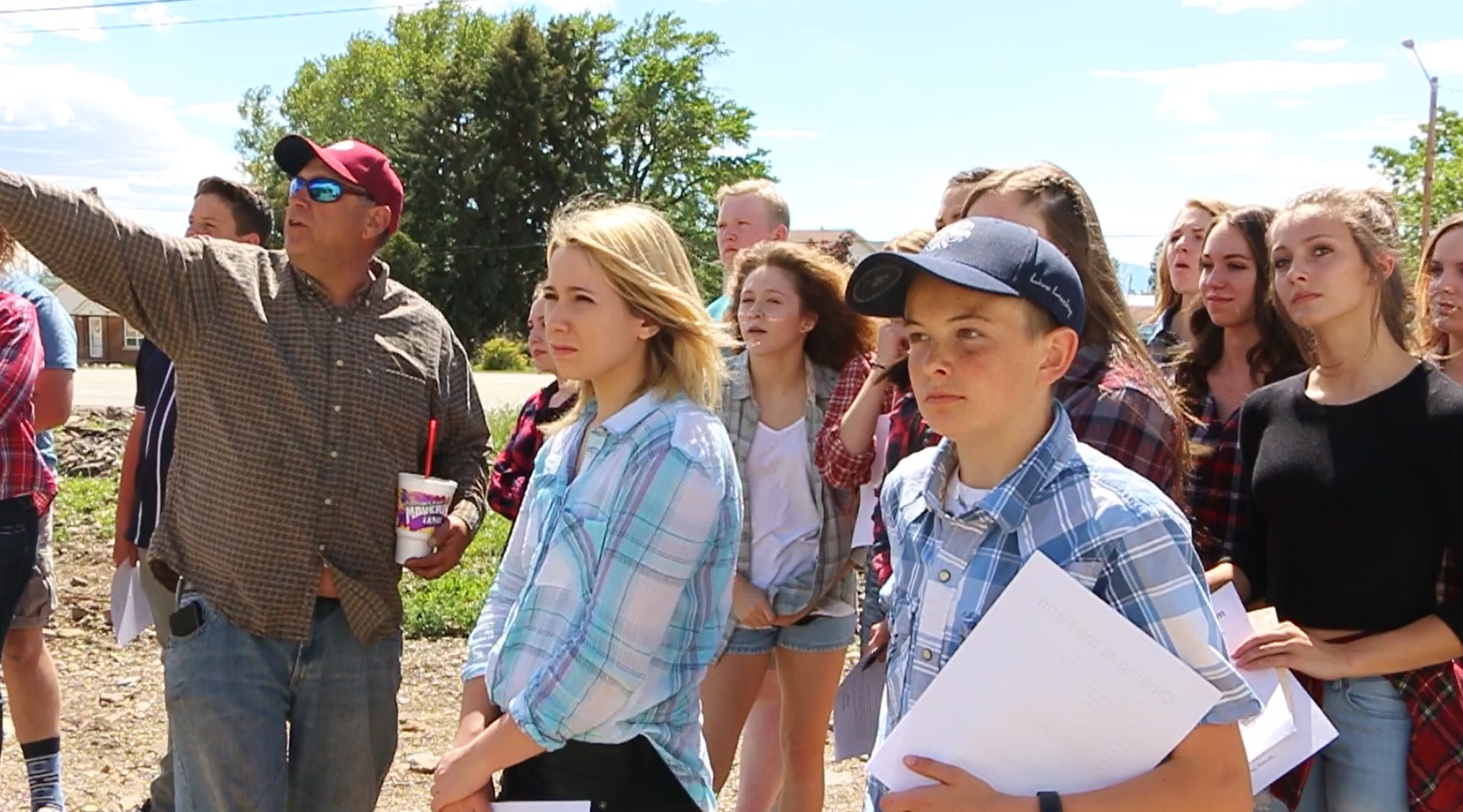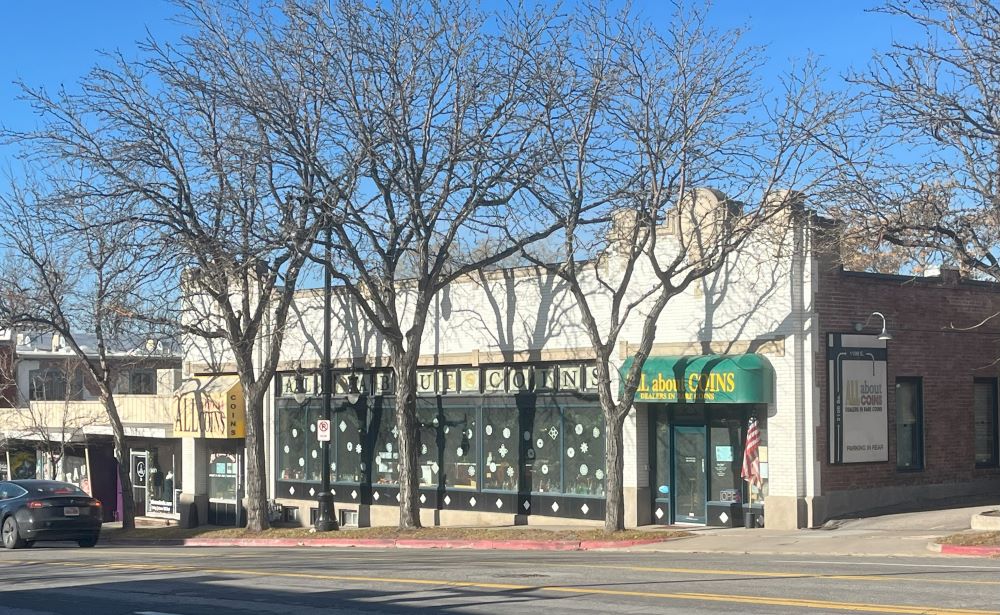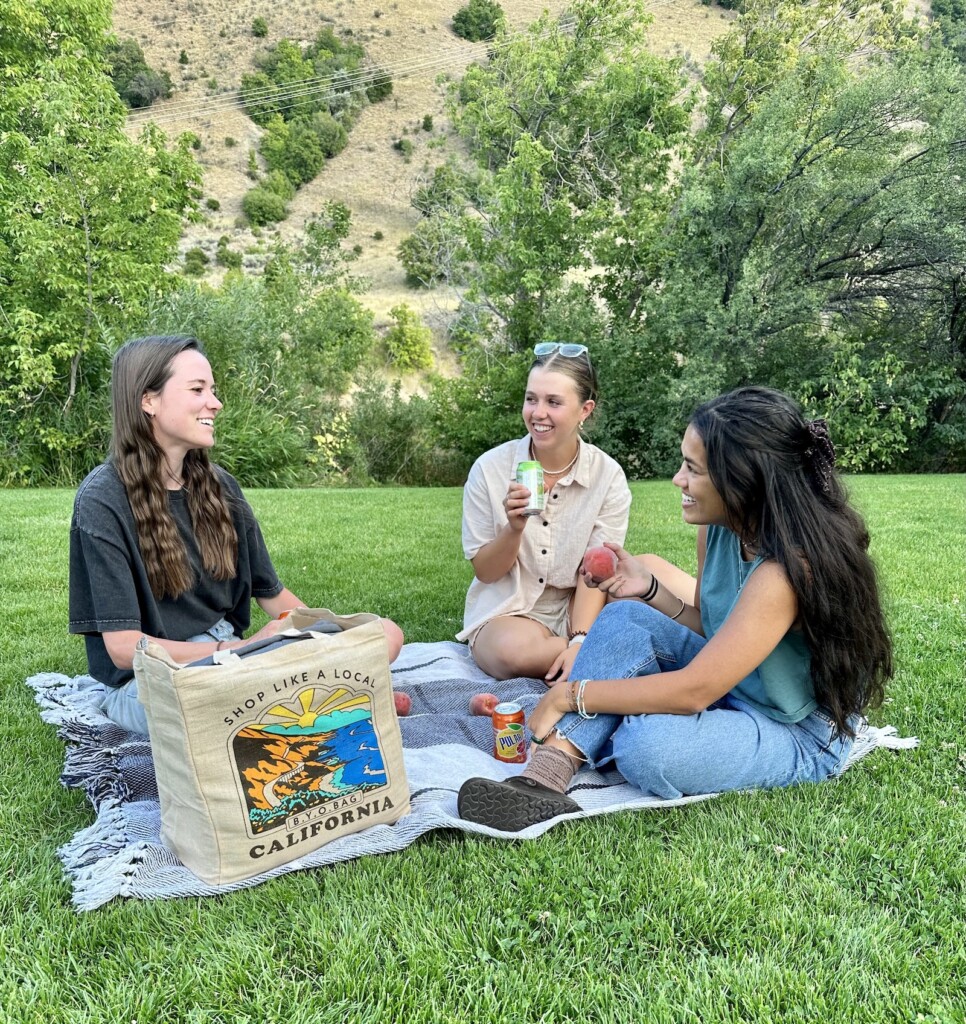Thayne Tagge was a bright-eyed, bushy-tailed 40-year-old accountant who wanted a change of venue when he bought his farm in Perry, Utah, and he has never looked back. Today, Tagge’s farm is a marvel of innovation and productivity. But all around him, neighbors are selling off their farms. “I could never afford to buy today, and it’s sad to see that this land will never stay as farmland,” he tells me. “It’s just too valuable.”
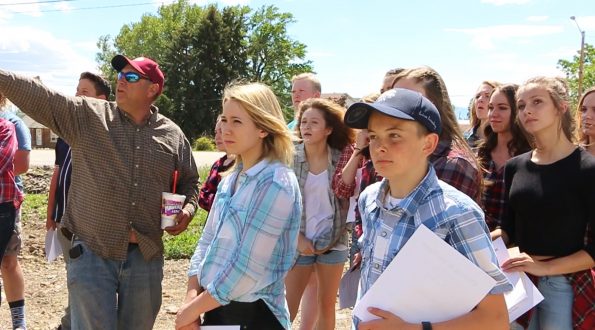
When the options come down to a family farmer tending orchards all day versus sitting on a pile of money from an eager developer, most choose the latter. On this day, Tagge is training a new group of recruits who will be selling Tagge produce at his many fruit stands and at farmers markets.
Thayne Tagge sums up his business in simple terms: “I can make a living at $20 per half bushel. Most trees will produce around three to five bushels. If you take good care of the tree, it will take good care of you.”
I then asked Tagge a series of questions which relate to the problems of small agriculture in Utah.
Utah Stories: On the issue of suburban sprawl and Wasatch Front growth, how do you think we can prevent or decrease the rate that we are losing farmland?
Tagge: I’ve noticed that when it hits the third-generation, there are so many families involved, everyone wants to liquidate. And it becomes the easiest solution. But it’s so hard to buy the rest of the family out because everyone wants development prices. I just don’t know how you are going to slow down growth. When a family is squabbling over the land, they usually sell it.
UTS: Should we tighten zoning to save our agricultural land?
Tagge: That’s a problem. When you own land you want to do with it what you want. You really don’t want someone else telling you what you should do with it. It’s pretty brutal to say that, but it has to come from the family and what their commitment is. To me, this is sustainable. I can make a great living and I can employ a lot of people.
UTS: It seems odd that there are professional lawyers, doctors, biomedical engineers, but the profession of farming and the people who are growing our food and sustaining our food supply is shrinking. Why isn’t farming getting the respect it deserves as a profession?
Tagge: This is not an easy profession. You are taking something and allowing all the elements of nature to come together. It doesn’t get a lot of ‘status’, but man I love it!
Another problem is people coming into the business who can’t afford it unless they inherited the land. I bought my last piece in 2000, and I felt like I was just fortunate to get it at a half-decent price. But now, who’s got a million bucks? Nobody can afford to come in at that price.
When I came in in 1997, we were okay. But someone else doing that? I don’t see how that’s going to happen. I’m 57, and I consider myself one of the youngest farmers. There are a few others, but I don’t know any who are buying or starting orchards.
UTS: The way you have thrived and succeeded is by doing direct-to-consumer. Would you encourage this for others who want to get into farming?
Tagge: Yeah, direct-to-consumer is the way to go. If you think about it, if I’m handing you a dollar and you know that you are going to get to keep all of it and it’s going to stay in Utah, that’s a huge deal. I get twice as much when I sell it retail. That’s a big deal to me. And that’s the model to make it work.
UTS: The average age of an American farmer is 60-years old, and in many cases these farmers are selling out because their kids aren’t taking over. What can be done to keep the best farmland in the state of Utah productive?
Tagge: I don’t see it getting any better. I don’t know how you are going to stop it. Nielsen’s is winding down, Greg Young is done. Randy Mathews is done. These are guys I’ve farmed with. They taught me how to farm and they are saying, “we’re done.” As soon as a parent dies, the kids want to sell the land. When you develop it, you only sell it once. But I’m getting an income every year. I’m getting $20 for a half bushel of peaches. It’s a real value for my customers.
